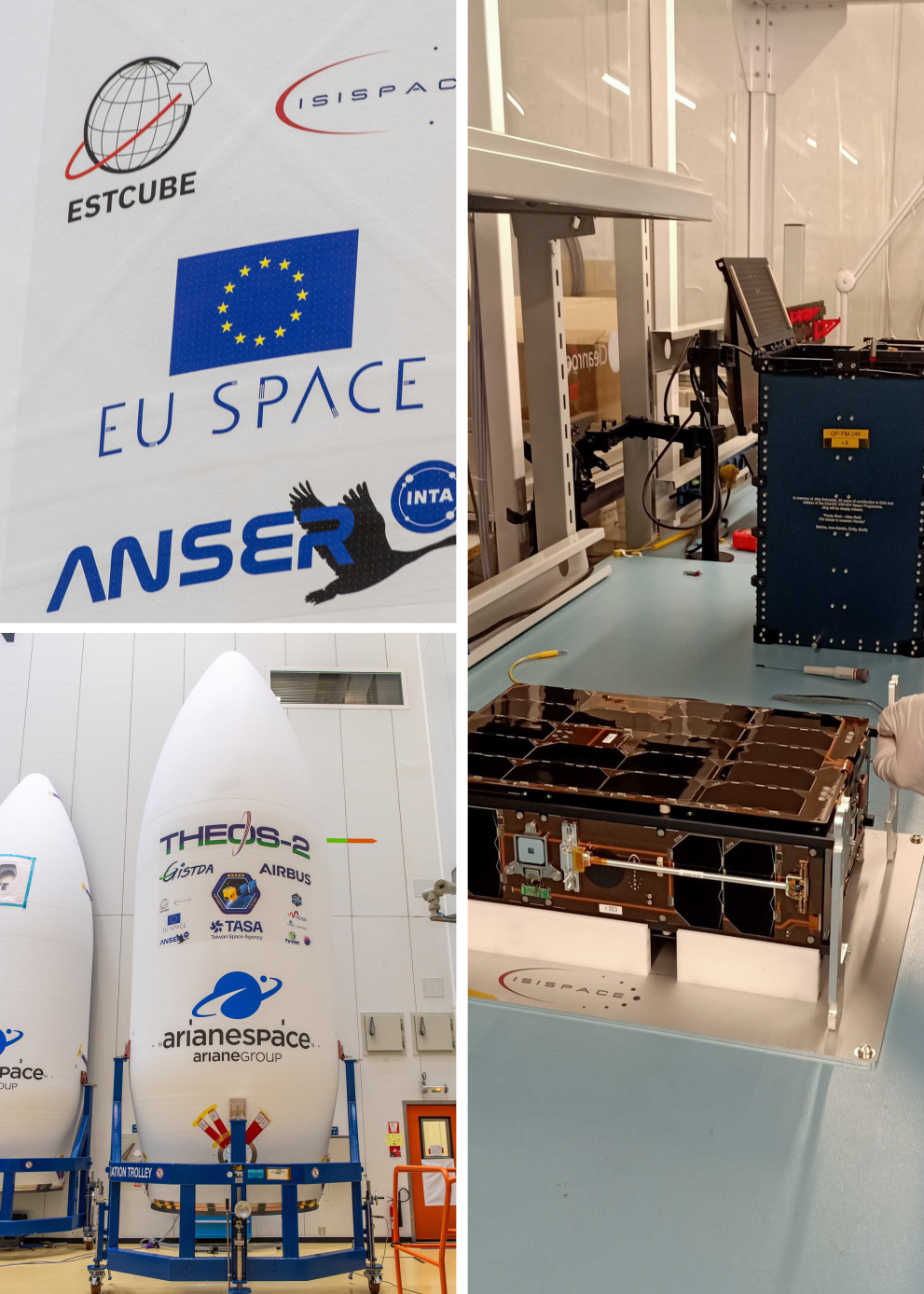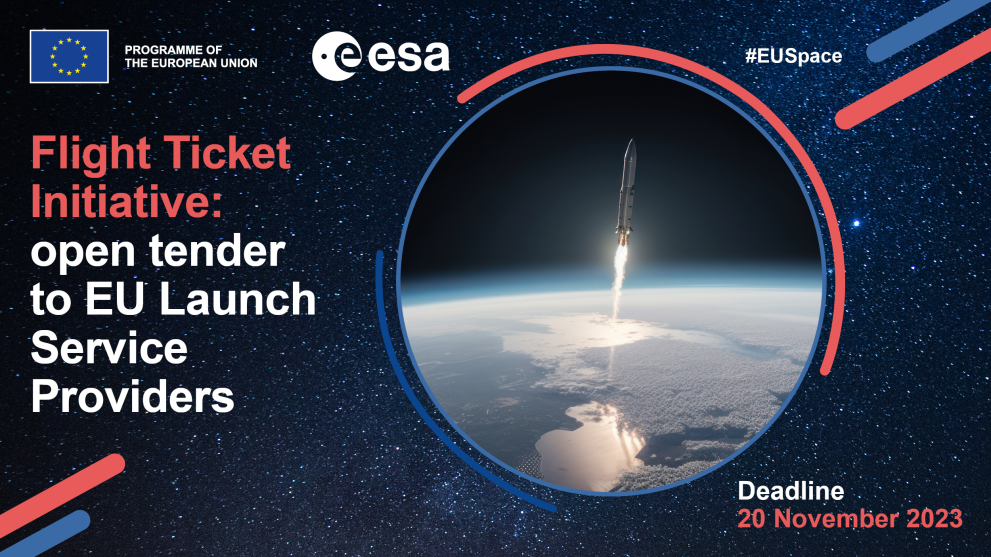In-Orbit Demonstration and Validation (IOD/IOV) is a Union programme allowing new technologies to be tested in orbit by providing aggregation, if needed, launch services and operations.
The IOD/IOV European programme has several expected benefits:
- The global competitiveness of the European space sector allowing innovative technologies to be effectively tested in orbit, while reducing the time to market.
- Reduce EU non-dependence by providing cost-effective services based on EU solutions both for the spacecraft and for the launch services;
- Foster the development of skills and talents by providing a generation of European engineers with hands-on experience in real-world space programmes.
- Enable the development of new commercial entrants (space tech start-ups and SMEs) for technology developers, satellite manufacturers and space transportation solutions.
About In-Orbit Demonstration and Validation (IOD/IOV) services

The IOD/IOV service is key for the space R&I community to demonstrate in space innovative technologies and operational concepts, thereby fostering the use of space data for scientific, public, or commercial purposes.
It allows academia, research organisations, SMEs and larger industrial companies to effectively test new technologies in orbit, reducing the time it would otherwise take to bring them to market. In providing flight heritage, it provides a major boost to start-ups in the EU and accelerates their time to market. The IOD/IOV programme is a key instrument of the Commission in support of start-ups, as part of CASSINI. It also helps the scientific excellence in supporting universities and research institutes.
It will also contribute to the EU space skills agenda by exposing students to activities required for designing, building, testing, integrating, and operating a satellite.
It will positively impact the competitiveness of European space research, the space industry and further demonstrate the capability of European organisations. These missions will contribute to maintaining Europe’s place as a global space leader, while shaping solutions for the future.
The IOD/IOV Services are:
- Aggregation services for IOD/IOV Experiments that need to be aggregated on a spacecraft (dedicated or rideshare missions);
- Launch services for aggregated IOD/IOV missions and for “Ready to Fly” Satellites;
- Up to one year of operations for aggregated IOD/IOV missions.
European Flight Ticket Initiative

The European Commission and the European Space Agency are jointly preparing a Flight Ticket Initiative, to be operational end 2023. The objectives of the Flight Ticket Initiative are to:
- Stimulate new European launchers systems and solutions through open competition for the procurement of launch services;
- Provide regular opportunities of affordable and responsive launch services for European “ready to fly” IOD/IOV satellites;
- Provide regular opportunities of affordable and responsive launch services for other EU IOD/IOV missions and possibly EU institutional missions.
The flight ticket initiative for IOD/IOV missions will use exclusively European manufactured launchers co-funded through the EU Horizon Europe programme and the ESA Boost! programme.
Main steps, from experiment selection to flight
March 2023 – March 2026: Parallel call for Expression of Interest to pre-select
- IOD/IOV Experiments needing aggregation;
- Ready to Fly IOD/IOV satellites.
The calls are open until 15th March 2026 with cut-off dates on:
- May 31st 2023, 18:00 (CET); - Closed
- March 15th 2024, 18:00 (CET);
- September 2nd 2024, 18:00 (CET);
- March 15th 2025, 18:00 (CET);
- September 1st 2025, 18:00 (CET);
- March 15th 2026, 18:00 (CET).
- 2023 – 2026Procurement actions are entrusted to ESA.
All tender actions will be published on the ESA-Star portal and reference to the actions is reported on the European Commission website.
- Carrier procurement for aggregation and operation services, including rideshare opportunities;
- Launch services through the COM/ESA Flight Ticket Initiative Apply Now
- 2024 - 2026IOD/IOV Experiment delivery for aggregation on spacecraft;
- 2024 – 2027Launch and operations
Background
The first call for expressing interest in IOD/ IOV experiments was kicked-off in April 2018 under Horizon 2020 R&I Programme. It attracted 50+ proposals from various European entities, from SMEs to large companies, universities and research organisations. Successful applications relate to technology innovation for EO, PNT, SatCom and space science.
In September 2020, the first selected IOD/IOV experiment, UPMSat-2, was successfully launched on board the Vega SSMS. The Syndeo-1 and Syndeo-2 cubesat missions implemented by ISISpace Group (NL), aggregating 7 IOD/IOV experiments, together with the ESTCube-2 and ANSER satellites were launched on 09 October 2023 from Kourou’s spaceport (launch VV23).
In spring 2022, a new call for expression of interest was published, kicking off the next phase of IOD/IOV services under the Horizon Europe R&I Programme. This time again, 50+ applications were received from the space community in various domains, including Earth Observation, Positioning, Navigation and Timing, Space Traffic Management, Telecommunications, etc.
Successful applications relate to technology innovation for EO, PNT, SSA, SatCom and space science. IOD/IOV missions are under preparation. Launch services for both missions and ready to fly satellites are expected in the upcoming years.


